- Home
- Jeremy Robinson
Insomnia and Seven More Short Stories Page 10
Insomnia and Seven More Short Stories Read online
Page 10
Jonas made his living by scouring the virtual sewers online and in people’s private systems. No secret was safe. Except, as fate would have it, the one fucking secret that really mattered—the location of Walter Elly.
The metal hatch groaned as Jonas pulled it open. Chips of rust fell from the hinges, landing in the toxic sludge at Jonas’s knees. He shined his flashlight inside. The tunnel was long, small and thank God, dry. He climbed into the tunnel, shimmied inside a few feet and kicked off his waders. He would need them for the trip back out.
He crawled through the tunnel, pulling himself forward by his forearms. He tried to look up, but his head smashed into the ceiling. He cursed, slammed his fist down, then continued forward, never knowing how much further he had to go. The schematics had shown the tunnel to be only one hundred feet long before meeting the vertical tube that lead up to the fallout shelter, but his slow pace made it seem much longer.
As he pushed forward, his thoughts turned to Elly. He knew very little about the man: what he looked like (5’8, skinny but strong, and a cocky shit-eating grin), his name, rank and his Navy serial number. He’d ripped the dog tags from Elly’s neck when he pulled the man off of Kira, Jonas’s dead wife. What had followed was still a blur. He’d taken Elly by surprise, knocked him to the kitchen floor next to Kira’s body and stomped on the man’s face until he lay motionless.
He didn’t stomp hard enough.
Elly survived.
After the police arrived, Elly came to. When they dragged him away, Elly flashed a near-toothless version of his shit-eating grin and whispered, “Check the bedroom.”
Seeing his wife dead on the kitchen floor, stabbed nine times with a bowie knife, had been hard enough for Jonas. Finding his children, ages three and five, strangled and discarded in a heap had broken something inside him. He wouldn’t just kill Elly, he’d torture him—kill him as painfully and slowly as possible. It became his life’s goal. He put all his money and resources into the task, but Elly had disappeared. The police records showed that he was transferred to a Navy prison, but they didn’t know which one.
The dog tags were his only clue. Fortunately, thanks to a memory augmentation, Jonas would never forget the information. Could never forget it. Elly’s name, rank and serial number would be with him forever.
He’d been up the virtual skirt of every Navy system he could find, but there wasn’t any mention of Elly, past or present. The man disappeared. Like he never existed.
Just like my family.
Jonas pulled himself forward on his now raw left arm, bringing his right up over and down again, but there was no floor to support him. He lurched forward as his arm fell over the edge of a vertical drop. His flashlight fell away, spinning a beam of light, as it fell into the darkness below. He watched the flashlight fall until it was a speck of light. He never heard it hit the bottom.
He cracked a glow-stick that lit the tunnel in a cool blue. The ladder was right where it was supposed to be. He took hold of the nearest metal rung and pulled himself out of the tunnel. When his feet came clear, his lower half swung down. But he was expecting the drop and landed square on the ladder, which seemed free of rust. He bounced on the ladder. It held tight.
He climbed.
Ten minutes later he reached the top, out of breath and with aching knees. A metal hatch, identical to the one on the sewer line, waited for him. The only difference between the two hatches was that this one was free of rust. Fitting the key into the lock would take no finagling this time. He inserted the key, turned it and opened the door. The air beyond was musty, but breathable. With the glow stick in his mouth, he climbed through the hatch and into a small metal chamber where a second, full-sized metal door waited.
This is where his plan ventured into the unknown. The fallout shelter on the other side was hardwired to the Navy Command above, which would give him access to the computer systems behind the hardware firewall, which he’d been unable to bypass from the outside. That would be easy. But this door required brute force. Jonas preferred finesse, but there was no other way. He pulled two small devices from his cargo pants pocket. On the black market they were known as DIGs (Destruction Is Guaranteed) and they’d cost the better portion of his remaining savings. But he was assured that just one could open any door. To be sure, he’d bought three.
He duct-taped two of the explosives to either side of the door, set the timers for thirty seconds, and returned to the ladder. With fifteen seconds to spare, he closed and relocked the outer hatch, tightened his grip on the ladder and waited.
The explosion dwarfed all of his expectations. The walls above him shot out, as a plume of debris smashed against the far wall and then descended the pit like a pyroclastic cloud. Through the dust, Jonas looked up and saw the thick metal hatch lean out toward him, then fall. It struck his shoulder, breaking his collar bone and then tumbled into the abyss.
Though his entire left side now groaned with pain, Jonas repositioned his mask and breathed freely in the dust. When the dust settled, he made his way back up, struggling to hold onto the rungs with his injured arm. He slid onto his belly, then stood. The metal door was gone, along with the walls, a portion of the ceiling and most of the room beyond.
“Guess I should’ve used just one,” he said.
The space beyond was a storage room. Thick liquids oozed from stacks of old canned goods. Bags of rice hissed at him as their contents slid to the floor. He made his way through the room, kicked down the bent door at the opposite end and entered a hallway. He cracked two more glow sticks and read the labeled doors as he walked past. He stopped at: Communications.
He tried the door. Unlocked.
A pair of old computers sat unused since their installation, yet they were miraculously dust free. Jonas wouldn’t have been surprised if they still worked, but he wasn’t after the computers. He knelt below the table and looked at the wall. The ports were ancient. T-17s. But he’d come prepared. After stretching out his screen and unrolling the keyboard, he took out a key ring that held fifty-odd adapters. He found the right one, plugged in and powered on.
Less than two minutes from the moment his screen collected and joined the microscopic particles in the air and projected the image of a Navy login screen, Jonas had the information he’d been looking for. Elly had been transferred—not to a brig, but to a battleship. The Keeling. He was serving as a...a pilot?
“What the fuck?”
What kind of justice was that?
Not his kind.
Jonas pursued the line of inquiry. He needed to find out everything he could about the Keeling.
“What the fuck!”
He found nothing.
Increasing his search parameters to the Keeling and Walter Elly turned up a single document. A crew manifest. Elly was on it. As were hundreds of other men and women, from Captain Antoine Williams to deck hand Peter Molitor. He began researching each individual crew member. His fingers flew over the keyboard and his eyes scanned the screen. An hour later he’d absorbed the details of each and every crew member, past and present, who had ever served on the Keeling. While researching, he’d been collecting the data, storing it in his perfect memory, but he had yet to process it. When he sat back, rubbed his eyes and thought about what he’d read, he smiled.
This was going to be easy.
Jonas worked the keyboard again, but this time he wasn’t simply reading information, he was creating a new file. His file. A military record. Time in the Navy. He knew the positions that needed to be filled—the Keeling seemed to go through crew quickly—and he knew what he could pass for. The galley needed a cook. He’d be the perfect candidate. 41 years old, though his bald top and grey sideburns made him look older. A little thick around the middle, but tough and good in the kitchen. He crafted his tour of duty, record and history to fit the perfect mold. When he was finished, he was a new man—Samuel Draper.
Now all he needed to do was kill someone.
Draper left the shelter, but he did
n’t take the same path out that Jonas had taken in. Instead he headed up. First through four sub-basements. Then through a storage level. He passed a few workers who gave him odd glances, but he continued undisturbed, while they talked about the small earthquake they’d felt. Upon reaching a service elevator, he took it to the first floor. He exited into the lobby where a receptionist waited.
He walked quickly to the desk, smiled and said, “Hi there...” He read her name tag, “Nancy.” I just came up from Sublevel 5 and noticed something odd in the elevator. Can you come tell me what you think it is?”
She eyed him for a moment, but his smile and deep blue eyes won her over. “This better not be a joke.”
“No joke, I swear.”
He led her to the elevator and pushed the call button. The doors slid open. A small device sat on the floor of the elevator. “There it is,” he said.
“Why, I don’t know...” Nancy knelt down and picked up the object. “There are numbers on it.”
“What numbers?”
She held it up, showing him the red, digital numbers displayed on a small screen.
15
14
13
She looked at the numbers again. Her eyes went wide. “It’s a countdown!”
His fist struck the side of her head before she could flee. She went down hard, whimpering in pain.
“I’m sorry,” he said. “There was no other way.”
As the doors closed, he stepped out of the elevator and dove to the side. The explosion chased him, but didn’t penetrate the metal box. The doors and walls all bent outwards, but the force of the explosion remained contained, putting all of its energy into Nancy’s body. When the klaxons rang out and the Navy Guard showed up, they pried the doors open. The interior of the elevator had been painted red, blemished by the occasional charred chunk of flesh and bone.
Draper pled guilty on the spot and was thrown in the brig. His ticket to the Keeling had been bought and paid for. Samuel Draper would have his revenge.
AFTERWORD
A few years ago, Scott Sigler, horror writer extraordinaire and friend, came to me with a request. He was putting together a podcast novel (free audiobook) called THE CRYPT. To add to the story, and help build interest, he was asking other authors to write short stories that created the characters for the novel and revealed their motivation for being on the spaceship referred to as The Crypt (because most who served on the ship, died on the ship).
BOUGHT AND PAID FOR is my contribution to this collaborative effort, and Sigler said it was the fan favorite out of the bunch. If you enjoyed this story, and would like to learn more about Jonas’s fate, visit: http://www.scottsigler.com/taxonomy/reverse/71. You can listen to all of the character intros, including BOUGHT AND PAID FOR, as well as the entire novel, FOR FREE.
ABOUT THE AUTHOR
JEREMY ROBINSON is the author of seven thrillers including Pulse and Instinct, the first two books in his exciting Jack Sigler series. His novels have been translated into eight languages. He is also the director of New Hampshire AuthorFest, a non-profit organization promoting literacy. He lives in New Hampshire with his wife and three children.
Connect with Robinson online:
Amazon: http://www.amazon.com/Jeremy-Robinson/e/B001JOVF7I
Twitter: www.twitter.com/jrobinsonauthor
Myspace: www.myspace.com/sciencethriller
Facebook: www.facebook.com/sciencethriller
Website: www.jeremyrobinsononline.com
The following pages include samples from Jeremy Robinson’s THE LAST HUNTER - DESCENT, and BENEATH, and Jeremy Bishop's TORMENT. All are fantastic reads.
—SAMPLE—
THE LAST HUNTER by JEREMY ROBINSON
Available for $2.99 on Kindle.
CLICK HERE TO BUY
DESCRIPTION:
I've been told that the entire continent of Antarctica groaned at the moment of my birth. The howl tore across glaciers, over mountains and deep into the ice. Everyone says so. Except for my father; all he heard was Mother’s sobs. Not of pain, but of joy, so he says. Other than that, the only verifiable fact about the day I was born is that an iceberg the size of Los Angeles broke free from the ice shelf a few miles off the coast. Again, some would have me believe the fracture took place as I entered the world. But all that really matters, according to my parents, is that I, Solomon Ull Vincent, the first child born on Antarctica—the first and only Antarctican—was born on September 2nd, 1974.
If only someone could have warned me that, upon my return to the continent of my birth thirteen years later, I would be kidnapped, subjected to tortures beyond comprehension and forced to fight...and kill. If only someone had hinted that I'd wind up struggling to survive in a subterranean world full of ancient warriors, strange creatures and supernatural powers.
Had I been warned I might have lived a normal life. The human race might have remained safe. And the fate of the world might not rest on my shoulders. Had I been warned....
This is my story—the tale of Solomon Ull Vincent—The Last Hunter.
EXCERPT:
12
My foot rolls on a bone as I kick away from the bodies. There’s so many of them, I can’t make out what I’m seeing. It’s like someone decided to play a game of pick-up sticks with discarded bones. I fall backwards, landing on a lumpy mass. My hands are out, bracing against injury. Rubbery flesh breaks my fall, its coarse hair tickling between my fingers. I haven’t seen the body beneath me, but I know—somehow—that it’s dead.
Long dead.
This is little comfort, however. After finding my footing, I stand bolt upright. My chest heaves with each breath. Each draw of air is deep, but the oxygen isn’t getting to my head. I try breathing through my nose, and the rotten stench of old meat and something worse twists my stomach with the violence of a tornado. I drop to one knee, fighting a dry heave.
“Slow down,” I tell myself. “Breathe.”
I breathe through my mouth. I can taste the foul air, but I force each breath into my lungs, hold it and then let it out slowly. Just like I learned at soccer practice. I only lasted a few practices before giving up, but at least I came away with something. Calm down. Focus. Breathe.
My body settles. I’m no longer shaking. But when I look up I wonder if I’ve done something wrong. Stars blink in the darkness, like when you stand up too fast. But they’re not floating around. They’re just tiny points of light, like actual stars, but I get the feeling they’re a lot closer. The brightest of the light points are directly behind me, and to test my theory I reach out for them. My hand strikes a solid wall.
Stone.
The points of light are small glowing stones, crystals maybe. I’d be fascinated if I weren’t absolutely terrified.
My hand yanks away from the cool surface as though repulsed by a magnetic force. For the first time since waking, a rational thought enters my mind.
Where am I?
It’s a simple question. Finding the answer will give me focus. I turn my mind to the task while my body works the adrenaline out of its system.
The dull yellow stars behind me are large, perhaps the size of quarters. They wrap around in both directions, almost vanishing as they shrink with the distance. But I can see them surrounding me with a flow of tiny lights. There is no door. No escape.
I’m in a pit.
Full of bodies.
Long dead bodies, I remind myself as my breathing quickens. It’s like looking at the mummies in The Museum of Fine Arts. They can’t hurt you.
With my eyes better adjusted to the dim light, I crouch down to look at the bone I stepped on. What I see causes me to hold my breath, but I find myself calming down for two reasons. First, my mind is engaged, and like Spock, my emotions, which can overwhelm me, are being choked out. Second, the bones are not human.
The nearest limb looks like a femur, but it’s as thick as a cow’s and half the length. I try to picture an animal that would have such thick, short limbs, but no
thing comes to mind.
I scan the field of bones. Most are similar in thickness and size, but many I can’t identify. Whatever these bones belonged to, I’m fairly certain they’re not human. In fact, they don’t belong to any creature I’ve ever seen before.
Remembering the soft flesh that broke my fall, I turn around and look down. If not for the clumps of rough red hair sticking out of the sheet of white skin, I might have mistaken it for a chunk of rug padding. The skin is thick, perhaps a half inch, and hasn’t decomposed at all despite the bones beneath it being free of flesh.
A scuff above me turns my head up as dirt and dust fall into my face. Someone is above me.
“Who’s there?” My voice echoes.
The only response I get is silence, which makes me angry. I’ve been beaten and kidnapped after all. “Hey! I know you’re there!”
“I wouldn’t do that if I were you.”
The sinister scrape of the voice makes my stomach muscles tighten. This is the man who took me.
“Why?” I ask through clenched teeth, determined not to show this man fear.
“Because...” I suspect his pause is for dramatic effect. When I feel the sudden urge to pee, I know it’s working. “...you’re not alone.”
I spin around, forgetting all about my bladder. I can’t see more than ten feet of body-strewn floor. Beyond that it’s just a sea of light flecks. If there is someone down here with me, I’ll never see them.
Then I do.
In the same way we detect distant objects moving in space, I see a body shifting to my left, blocking out the small lights.
“Who is it?” I whisper.
“Not a who,” answers the voice.
Not a who? Not a who!

 Alter
Alter From Above - A Novella
From Above - A Novella Flux
Flux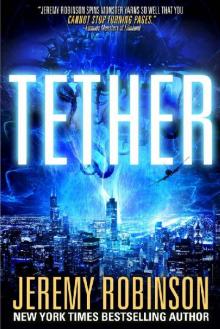 Tether
Tether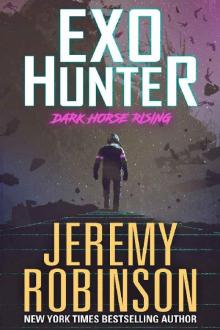 Exo-Hunter
Exo-Hunter Pulse
Pulse Cannibal
Cannibal Omega: A Jack Sigler Thriller cta-5
Omega: A Jack Sigler Thriller cta-5 Flood Rising (A Jenna Flood Thriller)
Flood Rising (A Jenna Flood Thriller)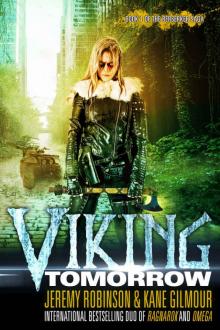 Viking Tomorrow
Viking Tomorrow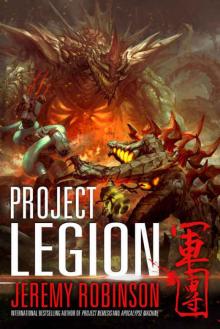 Project Legion (Nemesis Saga Book 5)
Project Legion (Nemesis Saga Book 5) BENEATH - A Novel
BENEATH - A Novel Kronos
Kronos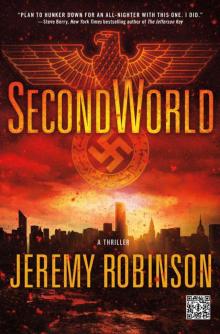 SecondWorld
SecondWorld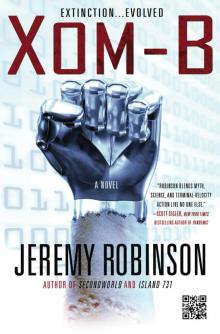 XOM-B
XOM-B Forbidden Island
Forbidden Island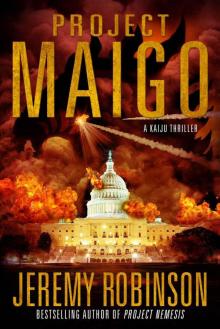 Project Maigo
Project Maigo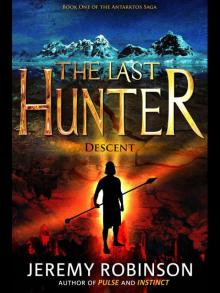 The Last Hunter - Descent (Book 1 of the Antarktos Saga)
The Last Hunter - Descent (Book 1 of the Antarktos Saga)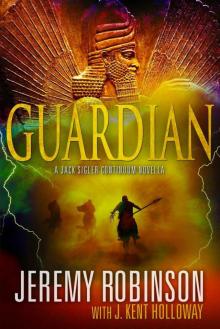 Jack Sigler Continuum 1: Guardian
Jack Sigler Continuum 1: Guardian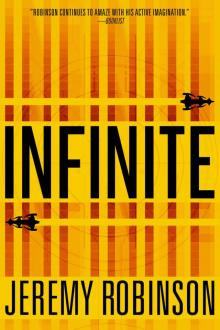 Infinite
Infinite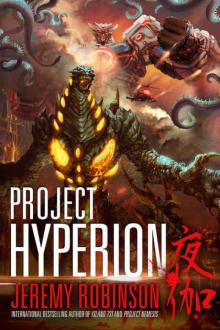 Project Hyperion
Project Hyperion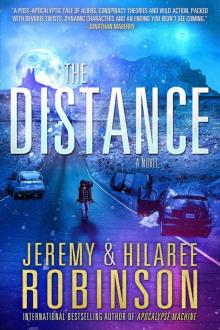 The Distance
The Distance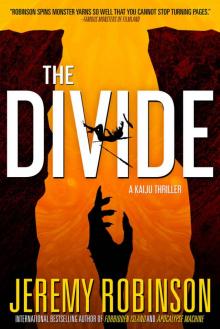 The Divide
The Divide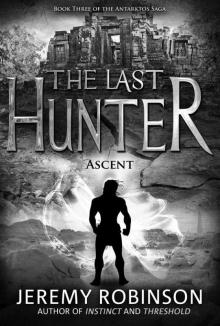 The Last Hunter - Ascent (Book 3 of the Antarktos Saga)
The Last Hunter - Ascent (Book 3 of the Antarktos Saga)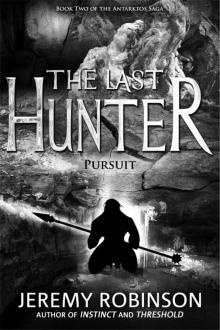 The Last Hunter - Pursuit (Book 2 of the Antarktos Saga)
The Last Hunter - Pursuit (Book 2 of the Antarktos Saga) Raising the Past
Raising the Past The Others
The Others The Last Hunter - Collected Edition
The Last Hunter - Collected Edition Threshold
Threshold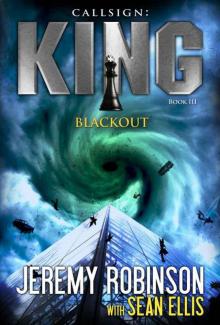 Blackout ck-3
Blackout ck-3 Antarktos Rising
Antarktos Rising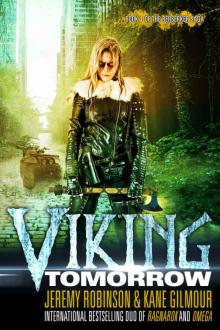 Viking Tomorrow (The Berserker Saga Book 1)
Viking Tomorrow (The Berserker Saga Book 1) The Didymus Contingency
The Didymus Contingency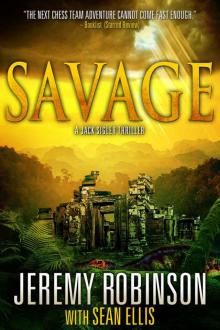 Savage (Jack Sigler / Chess Team)
Savage (Jack Sigler / Chess Team)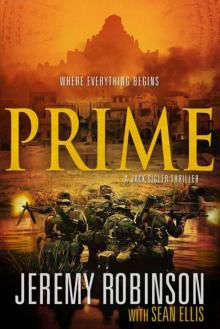 Prime
Prime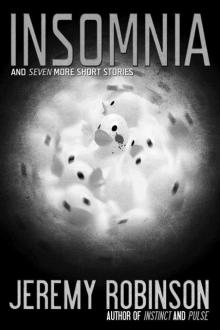 Insomnia and Seven More Short Stories
Insomnia and Seven More Short Stories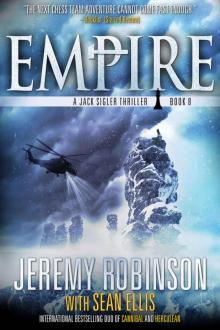 Empire (A Jack Sigler Thriller Book 8)
Empire (A Jack Sigler Thriller Book 8)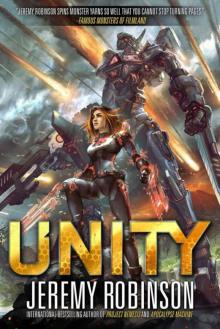 Unity
Unity Instinct
Instinct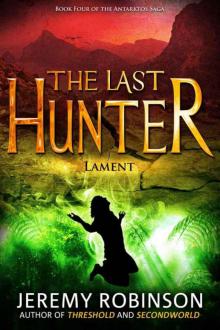 The Last Hunter - Lament (Book 4 of the Antarktos Saga)
The Last Hunter - Lament (Book 4 of the Antarktos Saga)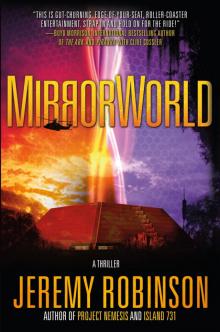 MirrorWorld
MirrorWorld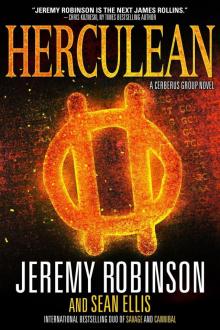 Herculean (Cerberus Group Book 1)
Herculean (Cerberus Group Book 1) Island 731
Island 731 Omega: A Jack Sigler Thriller
Omega: A Jack Sigler Thriller Patriot (A Jack Sigler Continuum Novella)
Patriot (A Jack Sigler Continuum Novella)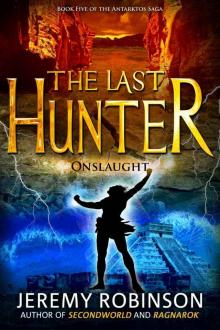 5 Onslaught
5 Onslaught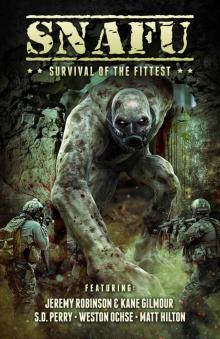 SNAFU: Survival of the Fittest
SNAFU: Survival of the Fittest Helios (Cerberus Group Book 2)
Helios (Cerberus Group Book 2)